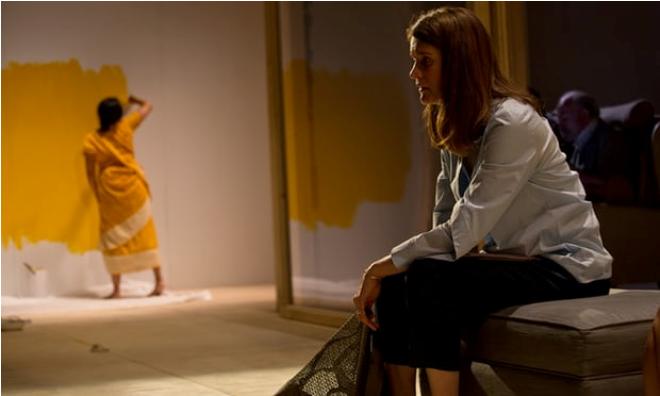
Sunday July 23, 2017
Vivienne Franzmann has made her name with dramas – Mogadishu, The Witness – about scruples, power and exploitation. Now she examines surrogacy.
The economics and the human cost. In Bodies, Justine Mitchell plays, with febrile precision, a white English telly producer desperate to conceive. She is efficient but frantic. Even her description of making kale crisps is obsessional – though perhaps making kale crisps is a definition of an obsessive.
Her husband is used to confiscating razor blades and refusing invitations where children are present: Jonathan McGuinness, standing in for a sick Brian Ferguson, showed how a script in the hand need not impede a passionate performance.
Dying and paralysed, he is dependent on the carer paid for by his son-in-law. Had the title not already been taken, Bodies might have been called “Skins”. The psychologically distraught white rely on the economically desperate brown and black.
Franzmann’s play and Jude Christian’s production are fair, acute – and over-deliberate. Gabriella Slade’s design turns the stage – white with splashes of saffron – into a 60s sideboard. Sliding doors divide the action, logically – the father sits at the back – but obtrusively: the doors need a bit of a heave. A screen bubbles with amniotic anxiety. Sometimes I Feel Like a Motherless Child is sung at the beginning and end. An imaginary daughter weaves whimsically through the action.
Lorna Brown is poised and witty as the carer. But her character is idealised. She not only mashes up the right food but sees into the crux of the couple’s arrangements: an Indian surrogate who has no legal protection, and a Russian egg donor who is as white as the prospective parents. Clever and compassionate, this carer is what everyone wants – for our parents and friends and ourselves. But she comes at a cost.